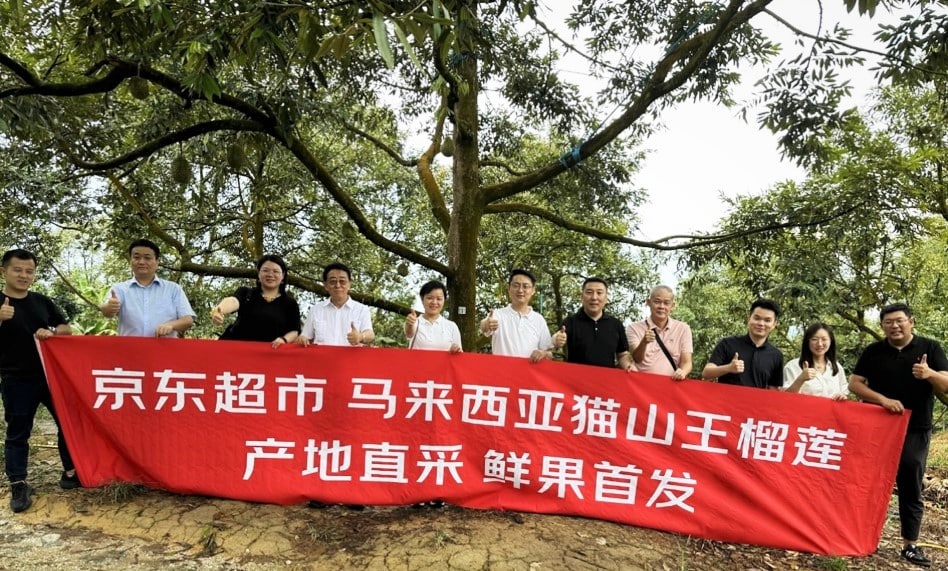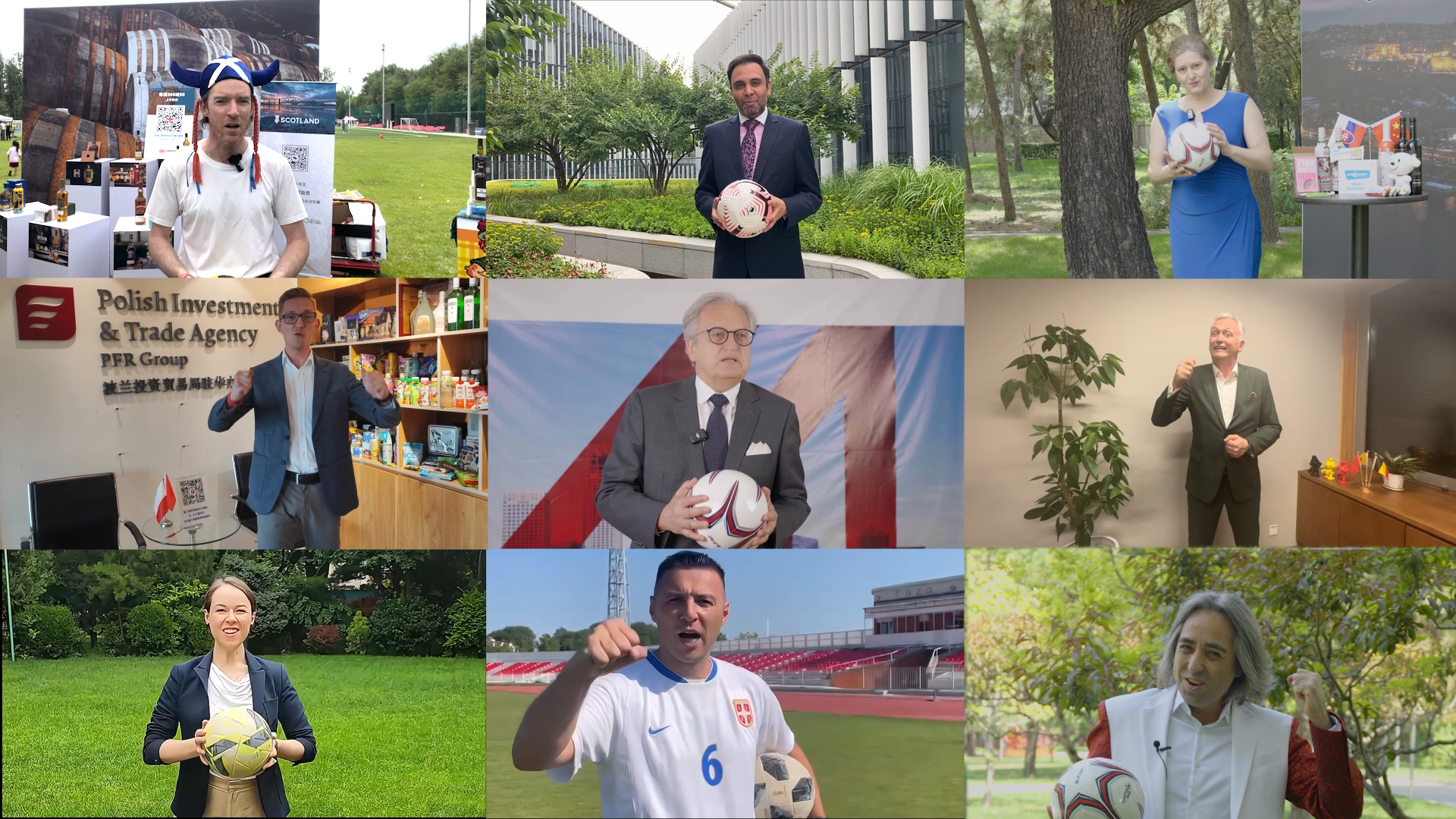Nov 28, 2022|
JD.com in Hands with Diplomats in Beijing to Share Lifestyle to Consumers
by Doris Liu
JD Worldwide, JD.com’s comprehensive imported products business, joined hands with ambassadors from Georgia, Moldova, Pakistan, Sri Lanka, and business counselors from Austria and Cyprus to share their lifestyle with specialties in a program broadcasted on BRTV (Beijing Radio & Television Station) on November 25, synchronizing the good life of the world with viewers in China.

Generally considered the “cradle of wine”, Georgia has a history of 8,000 years culture of wine. H.E. Archil Kalandia, Ambassador of Georgia to China, introduced the tradition of Qvevri wine-making method, which was recognized by UNESCO as an intangible cultural heritage, by showing photos of clay vessels buried underground.
“The process is very natural, and it’s linked with the ground. For us, wine is in life rather than just a drink,” said the ambassador, demonstrating a traditional Georgian drinking horn which is used in ritual toasting. He also presented Borjomi carbonated mineral water from one of the world’s four most recognized longevity places, Caucasus of Georgia.

H.E. Dumitru Braghis, Ambassador of Moldova to China, first showed audience organic products such as nuts, cosmetics, walnut oil and honey. Since wine is also cornerstone of Moldova’s cultural identity, Ambassador Braghis brought ten bottles to stage with profound introduction of the world’s Top 2 largest wine cellars, Mileștii Mici and Cricova which are underground.
“I’m sure that next year we (China and Moldova) will have more, better and bigger results and we will be able to show to everybody that this friendship is already mature like Moldova wine,” said the ambassador.

The textile industry is the largest manufacturing industry in Pakistan, contributing a majority of the country’s exports. H.E. Moin ul Haque, Ambassador of Pakistan to China, displayed both traditional Chitrali hat and hand-made scarfs to unfold the exquisite dying and weaving techniques, as well as Pakistani gem and rice.

The well-known Ceylon tea, ginger cookies and coconut-based products from Sri Lanka impressed Chinese audience with Ambassador Palitha T. B. Kohona’s intriguing presentation. “For various reasons, Ceylon tea is considered to be one of the best black tea in the world,” said Ambassador Kohona, adding that the climate, the soil and the way of tea plucking and processing might be the reasons why the tea is special in color, aroma, taste and intensity.

Dr. Michael Berger, Commercial Counselor of the Austrian Embassy in Beijing, was delighted to see a variety of products such as Red Bull, wafer, milk and wine are popular in China. He highlighted that cows drink natural water and eat grass in meadow in Austria, which is one of the most advanced countries in biological agriculture, and some listen to classical music by Austrian composers Mozart and Haydn to help boost milk quality.

By sharing a story about Venus, the Queen of Cyprus, and her son Cupid, Mr. Petros Petrou, Commercial Counselor of the Cypriot Embassy in Beijing kicked off his demonstration with an array of specialties including traditional Halloumi cheese, blue wine and stuffed toys of Talking Tom.
JD.com had reported RMB 500 billion yuan in the procurement of imported products over the past three years, higher than its goal of RMB 400 billion set in 2019, according to the company’s Report on Consumption of Imported Products 2022 released earlier this month.
With authorization support from embassies in China, JD.com has seen a prosperity in national pavilion program, in which the total number of national pavilions is expected to surpass 100 by the end of 2022, serving as a broader bridge to bring high quality imported products to Chinese market.




 JD.com Sees Soccer-Related Sales Spike as World Cup Opens
JD.com Sees Soccer-Related Sales Spike as World Cup Opens



